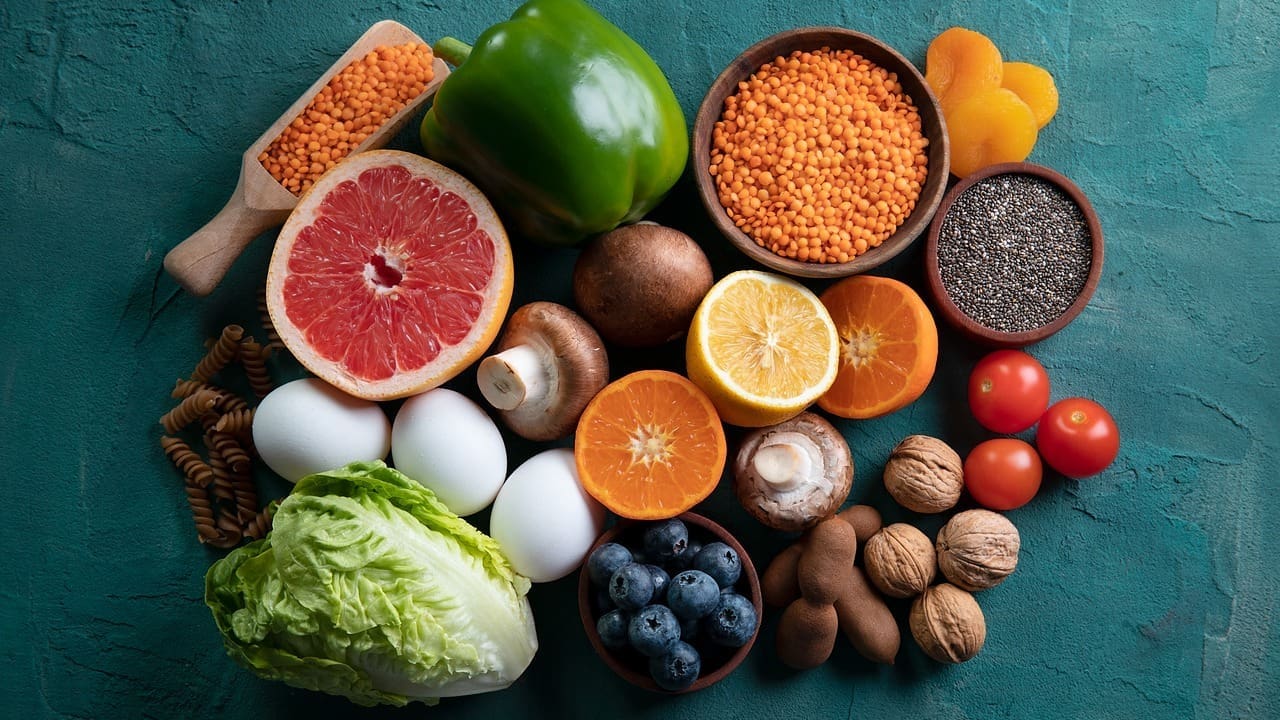
At Liv Hospital, we know that cancer care is more than just treatment. It includes what you eat. The alkaline diet is thought to help cancer patients. It involves eating foods that are alkaline-rich, like leafy greens and citrus fruits.
Studies show that eating more fruits and veggies can make your body more alkaline. This is because they help keep your urine pH high. Even though there’s not a lot of proof it helps with cancer, adding these foods to your diet is a good idea.

The alkaline diet is getting more attention for its possible benefits in fighting cancer. But what does it really mean? Let’s dive into its main ideas and how it might help cancer patients.
The alkaline diet is all about eating foods that help keep your body alkaline. You should eat lots of fruits, veggies, nuts, and seeds. Try to avoid foods that are acidic, like meat, dairy, and processed foods. It’s thought that what we eat can change our body’s pH levels.
Our body’s pH level shows if it’s acidic or alkaline. Even though our body tries to keep it stable, some think diet can play a role. They believe eating alkaline foods can help fight diseases, like cancer.
Some foods make your body more acidic, while others make it more alkaline. Alkaline foods are mostly fruits and veggies. Acidic foods are things like meat and processed foods. Knowing this helps you follow an alkaline diet.
Here’s a simple comparison of alkaline-forming and acid-forming foods:
| Food Type | Alkaline-Forming Foods | Acid-Forming Foods |
|---|---|---|
| Fruits | Apples, Berries | Canned Fruits |
| Vegetables | Spinach, Broccoli | Canned Vegetables with Salt |
| Protein Sources | Almonds, Tofu | Beef, Chicken |
Eating more alkaline foods might help your body’s internal environment. Even though research on the alkaline diet and cancer is mixed, eating lots of fruits, veggies, and whole grains is good for your health.

Exploring the science of alkaline diets and cancer treatment is key. We need to know the latest research. Some studies suggest that an alkaline diet might help fight cancer by making it harder for cancer cells to grow.
Recent studies look into how alkaline diets affect cancer risk. Some findings hint at a lower risk of certain cancers with an alkaline diet. But, we need more research to be sure. For example, a study on Nebraska Medicine talks about the diet’s possible effects on cancer.
Medical studies show cancer cells prefer acidic environments. But, changing the body’s pH through diet is hard. Some research looks into using pH to fight cancer, but the results are mixed. More study is needed.
| Study | Findings | Implications |
|---|---|---|
| Study on alkaline diet and cancer risk | Reduced risk of certain cancers associated with alkaline diet | Potential preventive benefits |
| Research on pH levels and cancer cells | Cancer cells thrive in acidic environments | Targeting pH levels as a possible cancer treatment |
The idea of using diet to change pH and fight cancer is interesting. But, there are big challenges. The body’s pH is hard to change with diet alone. We also need more research on the benefits and risks of using pH in cancer treatment.
An alkaline diet can help cancer patients in many ways. It’s not just about keeping the body’s pH balance right. It also focuses on eating foods that are full of nutrients. These foods can help keep the body healthy and strong while fighting cancer.
There are many benefits to an alkaline diet for cancer patients. It can help reduce inflammation and boost the immune system. It also provides important nutrients that help keep energy up during treatment.
An alkaline diet is all about eating whole foods like fruits, veggies, and grains. These foods are packed with vitamins, minerals, and antioxidants. They are key for keeping the immune system strong, which is important when fighting cancer.
An alkaline diet can work well with traditional cancer treatments. It gives the body the nutrients it needs to heal. It may also help manage side effects like fatigue and nausea.
| Benefit | Description |
|---|---|
| Reduced Inflammation | An alkaline diet rich in antioxidants and anti-inflammatory compounds may help reduce inflammation, potentially supporting overall health. |
| Immune System Support | Nutrient-dense foods in an alkaline diet can support immune function, which is critical during cancer treatment. |
| Enhanced Recovery | By providing essential nutrients, an alkaline diet can help the body recover from the effects of cancer treatment. |
An alkaline diet rich in leafy greens and cruciferous vegetables can offer numerous benefits for individuals undergoing cancer treatment. These foods are not only alkaline in nature but also packed with nutrients that support overall health and well-being.
Spinach is a nutrient-dense leafy green that is rich in vitamins A, C, and K, as well as minerals like iron and calcium. Its high antioxidant content helps protect cells from damage, potentially reducing the risk of cancer progression.
Kale is another leafy green that is highly alkalizing and rich in vitamins and minerals. It contains compounds that support detoxification processes in the body, which can be beneficial during cancer treatment.
Broccoli is a cruciferous vegetable that contains sulforaphane, a compound with known anti-cancer properties. Sulforaphane has been shown to inhibit the growth of cancer cells and induce apoptosis (cell death).
Cauliflower is another cruciferous vegetable that is rich in antioxidants and has anti-inflammatory properties. It contains vitamins C and K, and is a good source of fiber, supporting digestive health.
The nutritional benefits of these foods can be seen in the following table:
| Food | Key Nutrients | Benefits |
|---|---|---|
| Spinach | Vitamins A, C, K; Iron, Calcium | Antioxidant, Cell Protection |
| Kale | Vitamins A, C, K; Minerals | Alkalizing, Detoxification |
| Broccoli | Sulforaphane, Vitamins C, K | Anti-Cancer, Antioxidant |
| Cauliflower | Vitamins C, K; Fiber | Anti-inflammatory, Antioxidant |
Incorporating these leafy greens and cruciferous vegetables into an alkaline diet can provide cancer patients with essential nutrients and support their overall treatment plan.
Root vegetables are key for cancer patients. They’re full of nutrients and help keep the body alkaline. This is vital for health and fighting cancer.
Carrots are packed with beta-carotene, which turns into vitamin A. Vitamin A is an antioxidant that protects cells and boosts the immune system. Eating carrots helps keep cells healthy and may slow cancer growth.
Sweet potatoes are great for keeping the body alkaline. They have lots of fiber and complex carbs. This helps control blood sugar and supports digestion, which is key during cancer treatment.
Beets are special because they help detoxify the body. They have betalains, which are antioxidants. Beets also boost oxygen to cells, helping fight cancer. Their nitrates improve blood flow and lower blood pressure, good for the heart.
Avocados, though not root vegetables, are vital alkaline foods. They’re full of healthy fats that help absorb nutrients. Avocados also have vitamins and minerals that help keep the body alkaline and healthy. They’re great for cancer patients, providing essential nutrients and aiding healing.
Adding these root vegetables and other alkaline foods to a cancer patient’s diet is beneficial. They support an alkaline body and offer vital nutrients. This can improve overall health and aid in cancer treatment.
Adding alkaline fruits to a cancer patient’s diet can help a lot. These fruits are full of vitamins and minerals. They also have antioxidants that fight off free radicals.
Lemons are a great example of an alkaline fruit. They taste acidic but are alkaline for the body. They’re full of vitamin C, which boosts the immune system and fights cancer cells.
The citric acid in lemons also helps with digestion. It can lessen nausea and vomiting from cancer treatments.
Watermelon is another good choice for cancer patients. It’s mostly water, which is great for staying hydrated, even during treatments. It’s also full of lycopene, an antioxidant that fights cancer.
Berries like strawberries, blueberries, and raspberries are full of antioxidants. They have anti-cancer effects. They’re also rich in vitamins C and K, manganese, and fiber.
The antioxidants in berries protect cells and support health. They’re a great addition to a cancer patient’s diet.
| Fruit | Nutritional Benefits | Alkalizing Effects |
|---|---|---|
| Lemons | Rich in Vitamin C, aids digestion | Alkalizing despite acidic taste |
| Watermelon | High water content, rich in lycopene | Hydrating and alkaline |
| Berries | Packed with antioxidants, vitamins, and fiber | Antioxidant protection and anti-cancer compounds |
In conclusion, adding lemons, watermelon, and berries to a cancer patient’s diet is beneficial. These fruits offer essential nutrients and support health. They also have health benefits that help fight cancer.
Adding plant-based proteins to an alkaline diet is key for cancer patients. It helps meet nutritional needs while enjoying the diet’s benefits.
Almonds and other nuts are great for protein and have alkaline properties. They add healthy fats and antioxidants, boosting overall health.
Tofu and tempeh come from soybeans and balance hormones. They are rich in protein and easy to add to many dishes, supporting an alkaline diet.
Quinoa is a complete protein, with all nine essential amino acids. It’s also packed with minerals like magnesium and manganese, helping keep the body alkaline.
Lentils and beans are full of fiber and protein. They give slow energy and support digestion. Plus, they’re alkaline, making them great for cancer patients.
For more on foods to avoid, like fruits, check our page on fruits to skip during cancer. It helps patients make smart food choices.
By adding these plant-based proteins to their diet, cancer patients get a balanced, nutrient-rich plan. It supports their health and well-being.
An alkaline diet can help with cancer treatment. But, it’s important to know how to add it to your daily routine. Changing your diet during treatment can be tough, but it’s worth it.
Start with whole, nutrient-rich foods. Focus on fruits, veggies, and plant proteins. Leafy greens like spinach and kale are great. They’re alkaline and full of vitamins.
Start slow by adding alkaline foods to one or two meals a day. Then, increase the amount over time.
Talking to your healthcare provider about diet changes is key. They can give advice tailored to you. For more on the alkaline diet, check out Everyday Health’s review.
Here’s a meal plan to help you start:
| Meal | Food | Alkaline Benefit |
|---|---|---|
| Breakfast | Oatmeal with almond milk and berries | Rich in antioxidants and fiber |
| Lunch | Grilled vegetables with quinoa and avocado | High in alkaline minerals and healthy fats |
| Dinner | Lentil soup with kale and whole grain bread | Packed with alkaline-forming foods and fiber |
Following an alkaline diet can be tough, like dealing with nausea or not feeling hungry. Eat small meals often and choose soft foods. Drinking lots of water is also key. Try alkaline drinks like green juice too.
Incorporating alkaline foods into a cancer-supportive diet is key for health during treatment. Understanding an alkaline diet’s benefits helps cancer patients make better food choices. This can greatly support their health and well-being.
It’s important to balance alkaline foods to keep the body’s pH in check. An alkaline diet filled with leafy greens, cruciferous veggies, and fruits boosts immune function. Foods like spinach, kale, broccoli, and avocados are not only alkaline but also packed with antioxidants and nutrients.
While the alkaline diet can’t cure cancer, it can help with treatments. We suggest creating a meal plan with healthcare providers. This plan should include alkaline foods tailored to individual needs. This way, patients can possibly improve their treatment results and quality of life.
In summary, using alkaline foods in a cancer-supportive diet is a smart way to support health during treatment. By choosing the right foods, cancer patients can actively contribute to their care. This can lead to better treatment outcomes.
An alkaline diet focuses on eating foods that make your body more alkaline. This includes fruits, vegetables, and nuts. It may help by giving you nutrient-rich foods that boost your immune system. These foods can also support your cancer treatments.
Your diet greatly affects your body’s pH levels. Eating foods that are alkaline, like leafy greens, helps keep your body alkaline. On the other hand, foods that are acidic, like processed meats, can make your body more acidic.
Good alkaline foods for cancer patients include spinach, kale, and broccoli. Carrots, sweet potatoes, and lemons are also great. These foods can help support your health.
An alkaline diet may offer benefits, but it can’t cure cancer. Always follow your doctor’s advice for cancer treatment. An alkaline diet can be a helpful addition to support your health.
Add whole, nutrient-rich foods like fruits, vegetables, and nuts to your diet. Talk to your doctor to create a meal plan that fits your needs and treatment.
Yes, challenges include making dietary changes and managing side effects. It’s also important to get enough nutrition. A healthcare provider or dietitian can help you navigate these challenges.
Research shows pH levels might affect cancer development and treatment. Cancer cells often thrive in acidic environments. More research is needed to fully understand this relationship.
Alkaline foods can’t replace medical treatment, but they may help with side effects. For example, lemons and berries can help with nausea and provide antioxidants.
Work with your healthcare provider to create a balanced meal plan. This plan should include a variety of whole foods and meet your nutritional needs. It should also consider any dietary restrictions or preferences.
Subscribe to our e-newsletter to stay informed about the latest innovations in the world of health and exclusive offers!